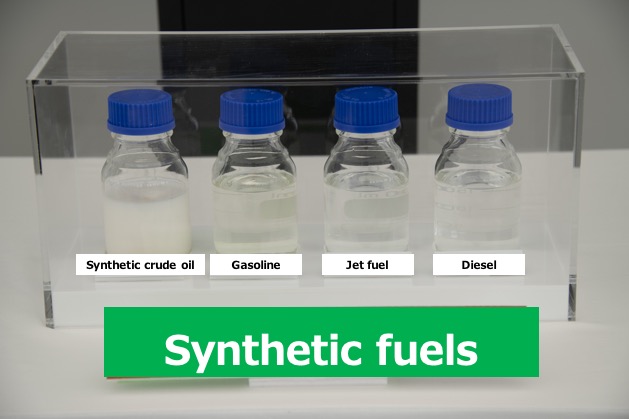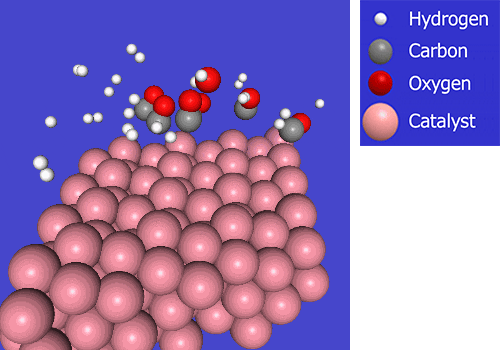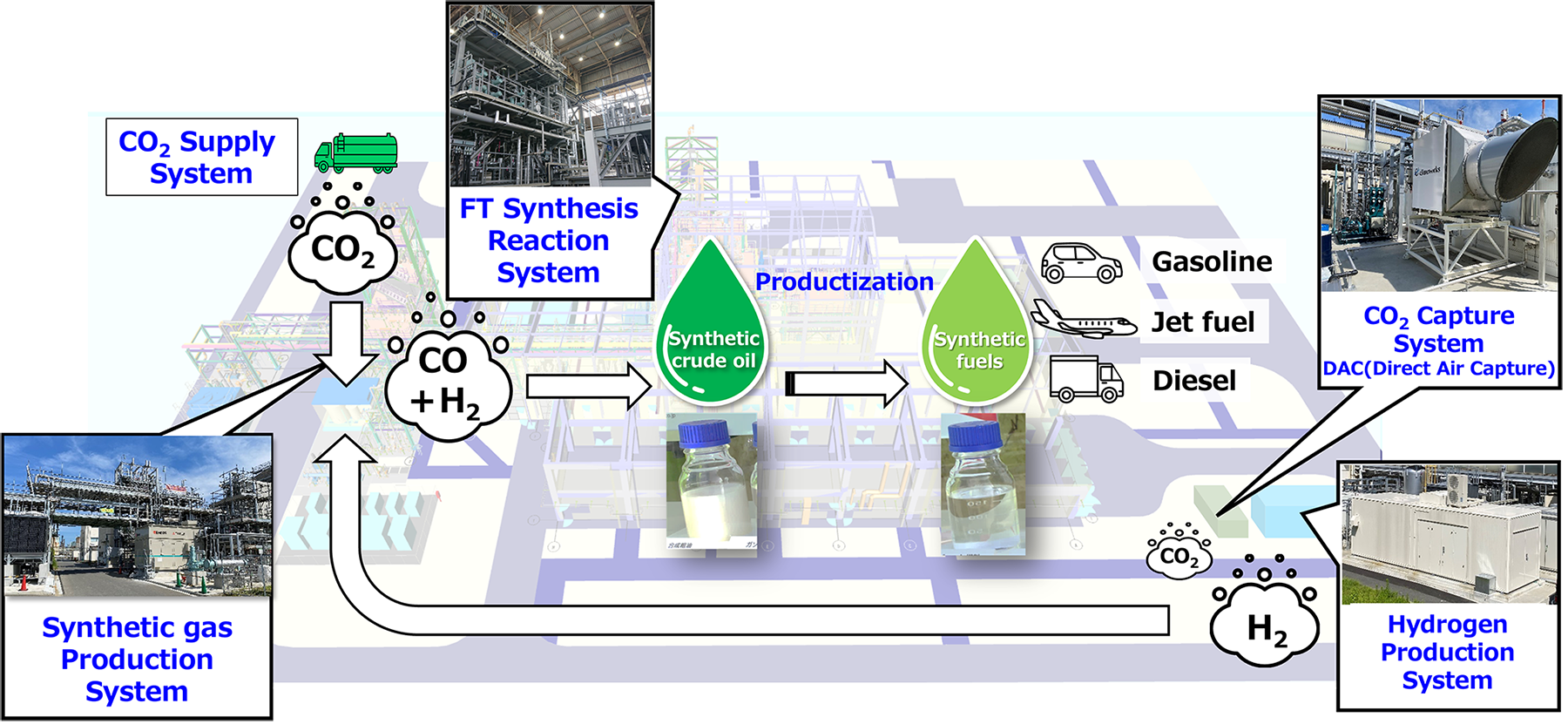Synthetic fuels

Synthetic fuels contributing to the realization of a carbon-neutral society
To significantly reduce CO2 emissions in the transport sector including automobiles, aircraft, and other vehicles, in a move toward carbon neutralization, ENEOS is developing a Synthetic Fuel production process using CO2 and hydrogen as an alternative to existing petroleum products (gasoline, jet fuel, diesel etc.).
Synthetic fuels produced from CO2 captured from industrial exhaust gases and/or the atmosphere and hydrogen derived from renewable energy sources are carbon-neutral fuels that can suppress the amount of CO2 emissions throughout their entire product lifecycle. In this way, they can contribute to reducing greenhouse gas emissions in society.
Since synthetic fuels consist of components quite close to those of existing petroleum products, it has the advantage of being able to use existing refinery equipment, the fuel distribution infrastructure, automobiles, aircraft, etc. Consequently, when this technology can be established, it should be possible to quickly spread the use of synthetic fuels in society.

Commercialization for this technology will require a variety of technical innovations such as production process engineering, catalysts technology, etc., so ENEOS is participating in the "Green Innovation Fund – Development of Technology for Producing Fuel Using CO2, etc. Project" of Japan's New Energy and Industrial Technology Development Organization (NEDO) to establish technology for highly efficient production process for synthetic fuels.

Catalyst/industrial process developments for producing synthetic fuels with high efficiency
Hydrogen and CO2 are produced or captured using large amounts of renewable energy, which accounts for the greater part of the production cost for synthetic fuels.
In order to reduce costs and promote the widespread use of synthetic fuels, it is important to turn these raw materials into products without wasting them.
When hydrogen and CO2 react, along with the distillates that become the basis for the product, by-products are generated in the form of light gases such as methane. Consequently, to obtain the product in a more efficient manner, it is necessary to develop a catalyst/production process that can minimize these by-products.
In Fischer-Tropsch (FT) synthesis, hydrogen and carbon monoxide (CO) react on a catalyst to produce synthetic crude oil through carbon chain growth.

Work toward the commercialization of a Synthetic Fuel production process
ENEOS is moving forward alongside the Japanese government with the aim of achieving the commercialization of synthetic fuels.
In FY2022, we initiated scale-up demonstrations at the plant level, and operations have now begun as of September 2024 (details).
Through R&D efforts and scale-up demonstrations, we aim to promptly establish this technology and make the production of environmentally friendly synthetic fuels a reality in the near future.
